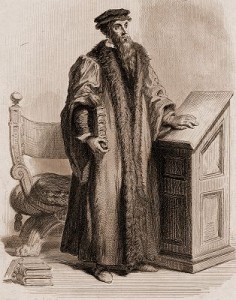Out of the many books that we’ve read for Artsone so far, I’ve thought greatly about each text and have found the connection it has with Western ideas; specifically and especially with the different types of governance each of these texts has offered. With Oedipus it was his complex way of how he was a ruler and a person–on one hand he cared deeply for his people, and on the other he can be seen as ignorant and corrupted. With Plato, it was his Kallipolis. With The Tempest it was Prospero and the great power he held. And with Hobbes, his idea of the Leviathan.
So what was it with Rousseau? While I did find what he had to say about civilization and the growth of men bold and largely relatable, I couldn’t get myself engaged with the text. It was surprising because many said it was an easy read–and while admittedly it flowed quite nicely–I often found myself lost in the text. The bad kind of lost. I can not grasp any clear concepts he presents, besides the fact that he thinks humankind is deteriorating with what we think is progress.
But perhaps it is because every time I think about Rousseau’s text and try to connect it with something I know–history has by far been my greatest help so far–I get into a place where I am afraid. Although Rousseau wrote Discourse in the mid 1700’s, the direct parallel I find with modern times within his text and his criticism on society and mankind sends a chill down my back.
Before I explain this, though, a bit of context here: My old math tutor often got angry with us whenever we forgot a certain formula and then he’d go on a rant on how much technology –mainly the Internet– was destroying our brains, and then he’d talk about how perhaps we are at the peak of our time and it’s nothing but downhill from here.
And yeah, maybe it was because he was an Old Man who didn’t quite understand technology, but he was smart. Like, human calculator smart. And the worst thing was that I could see how he was right. While we as a society often praise the efficiency technology has brought us, there are also disadvantages. We become dependable and our memories as well as our attention span has deteriorated. I once watched a TED Talk by a woman named Zeynep Tufekci that praised how quickly and widely the news–and in turn, many protests as well as social movements–can spread nowadays thanks to technology and social media. But she mentioned something else. The price we pay? These movements are often short term. While they take flight in the guise of “Trending Topics” on Twitter and other forms of social media, it isn’t soon after that these titles are forgotten as the Internet as a whole moves on to other things.
She also mentioned how the amount of work and organization that has been put into these movements before social media has allowed and manifested a group of people who can think collectively and act collectively. Tufekci’s comparisons of famous historical civil rights movements to many of the movements she’d be a part of is an interesting one. There is nothing different about these protests now, people still participate, still help each other, and still make life-long friendships. It is the fact that we as a large collective struggle with making change in the long term, to agree as a collective the step-by-steps necessary to– in Hobbes’ terms– agree on a new social contract.
While she ends her Talk on a positive note, Tufekci still goes back and emphasize the importance of her analogy on earlier forms of protests organized without social media: Tea without Sugar. And some part of me thinks that if Rousseau was still alive and kicking today, he would agree with Tufekci to a certain extent that media has, in some forms, worsened the civil society and how we move forward.
In fact, I think Rousseau would be very much like my old math tutor.
And to be honest, I had a point before this blog, but now I am lost as well, just like I am in Rousseau.
So…There’s that.
The TED Talk here, if you are interested: https://www.ted.com/talks/zeynep_tufekci_how_the_internet_has_made_social_change_easy_to_organize_hard_to_win?language=en

